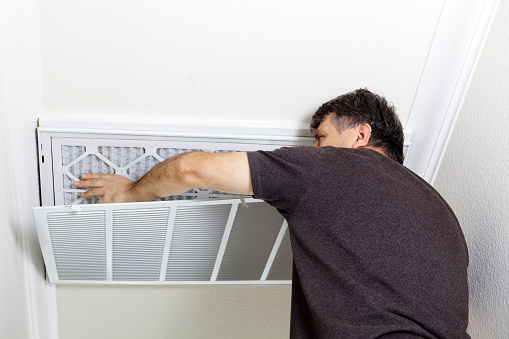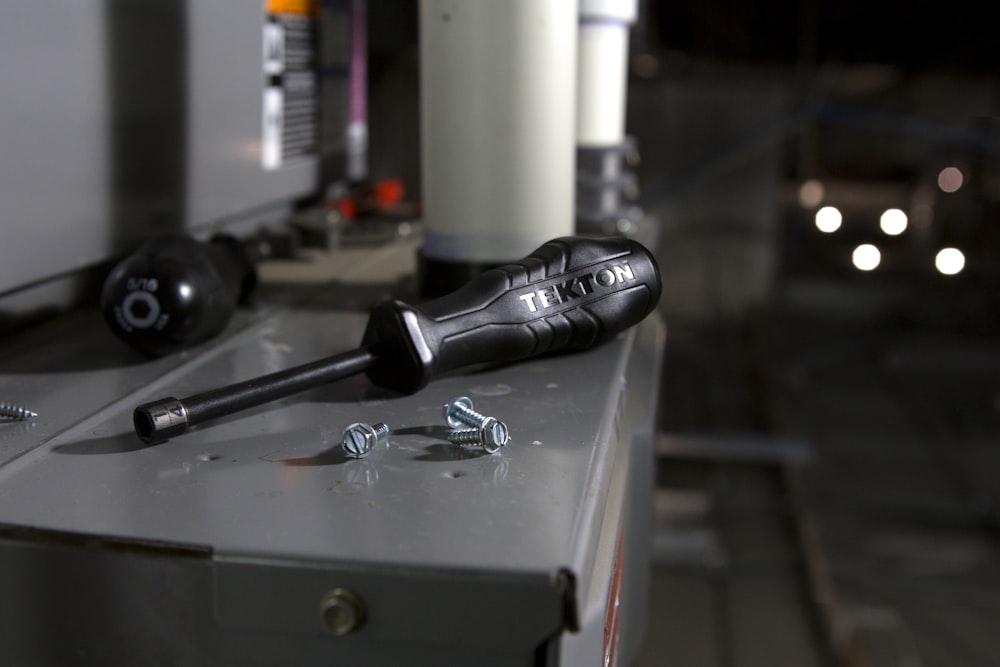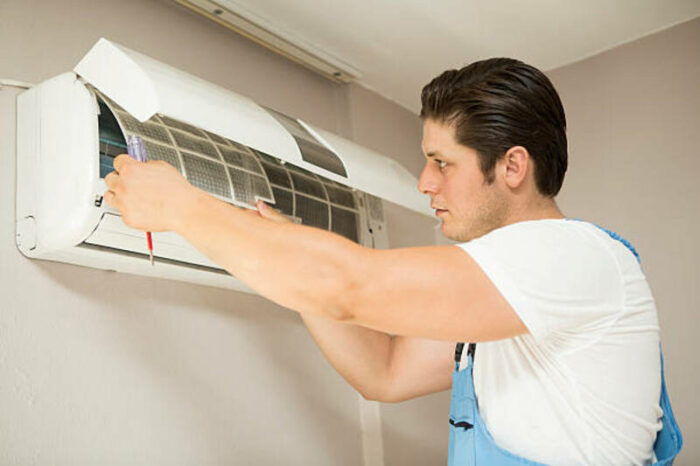Are you looking for ways to reduce energy consumption in your home’s HVAC system? Installing an air filter can be an effective way to help improve the efficiency of your system. In this article, we’ll take a look at why an air filter is important and how it contributes to overall energy efficiency.
Introduction to Air Filters
Your HVAC system’s air filter is important for many reasons. It helps to keep your system clean, which improves its efficiency. A dirty air filter can cause your system to work harder, using more energy and costing you more money. It can also lead to problems with indoor air quality.
A 20x23x1 air filter helps to reduce the number of chemicals that are released into the environment from your HVAC system.
An air filter removes harmful airborne particles like dust, pollen, and pet dander from the air as it passes through the filter. This helps to improve the quality of the air in your home and can reduce allergies and other respiratory problems. A clean air filter also protects your HVAC system itself from dirt and debris buildup, which can damage the system and lead to expensive repairs.
You should check your HVAC system’s air filter every month or two and replace it as needed. A clogged or dirty filter will reduce the efficiency of your system and could shorten its lifespan. Replacing your air filter is a simple and inexpensive way to keep your HVAC system running efficiently for years to come.
How Air Filters Improve HVAC Efficiency

Your HVAC system works by pulling air from the outside and circulating it through your home. The air is then filtered and pushed back out into the room. This process repeats continuously, providing you with a constant supply of fresh, clean air.
One of the most important components of your HVAC system is the air filter. The air filter’s job is to trap airborne particles, such as dust, pollen, and pet dander before they can enter your home. By doing so, the air filter helps to keep your indoor air quality high and prevents these particles from clogging up your HVAC system.
A clogged HVAC system is less efficient and can end up costing you more money in energy bills. Not to mention, it can also put a strain on your HVAC unit, potentially leading to costly repairs down the road. That’s why it’s important to regularly replace your air filter – typically every three months – to ensure that your HVAC system is running at peak efficiency.
In summary, an air filter plays a crucial role in keeping your HVAC system running efficiently. By trapping airborne particles before they can enter your home, an air filter helps improve indoor air quality
while also preventing strain on your HVAC unit. Be sure to replace your air filter every three months for optimal efficiency!
Types of Air Filters
Air filters come in a variety of shapes, sizes, and types to accommodate different HVAC systems. The most common type of air filter is the pleated air filter. Pleated air filters have more surface area than non-pleated air filters, which allows them to capture more contaminants. These types of air filters should be replaced every three to six months.
Another common type of air filter is the HEPA filter. HEPA filters are designed to capture very small particles, making them ideal for people with allergies or asthma. These types of air filters need to be replaced more frequently than pleated air filters, typically every one to two months.
Mesh air filters are another option for HVAC systems. Mesh air filters are made from a tightly woven mesh that captures contaminants as they pass through the filter. These types of air filters can last up to a year before they need to be replaced.
The final type of air filter is the carbon filter. Carbon filters are designed to remove odors and VOCs (volatile organic compounds) from the air. These types of Air Filters should be replaced every six months to a year.
Benefits of Installing an Air Filter

An air filter helps to improve the efficiency of your HVAC system by trapping airborne particles that can clog and damage the system. By keeping the system clean, you can extend its lifespan and prevent expensive repairs. In addition, an air filter prevents harmful pollutants from entering your home, improving indoor air quality.
Regular Maintenance and Replacing an Air Filter
Assuming you have a central HVAC (Heating, Ventilation, and Air Conditioning) system in your home, it contains an air filter. Maybe you’ve never given it a second thought, but that air filter plays a crucial role in the efficiency of your entire HVAC system. In this blog post, we’ll talk about how an air filter helps to improve the efficiency of your HVAC system and why regular maintenance and replacing your air filter is so important.
Your HVAC system’s job is to circulate the air in your home. This is done by drawing in outside air, heating or cooling it as necessary, and then distributing it throughout your home via a network of ducts. Your air filter is located at the point where outside air first enters your HVAC system – typically the return-air grill or blower compartment.
As its name implies, one of the primary functions of an air filter is to remove airborne particles like dust, pollen, mold spores, and pet dander from the incoming air stream. By doing so, it protects sensitive components within your HVAC system from damage and ensures that only clean air circulates throughout your home. Additionally, fewer contaminants in the air also mean better indoor Air Quality (IAQ).
Conclusion
In conclusion, an air filter is essential to your HVAC system’s efficiency. By preventing dust and other airborne particles from entering the system, your furnace will be able to run more efficiently and last longer. Keep changing the filters regularly for optimum results. If you want to get maximum benefits from your HVAC system, make sure that you install a high-quality air filter that meets all of the required standards!



Thank you for this insightful article on how air filters can enhance HVAC efficiency! I appreciate the clear explanations and practical tips you’ve provided. It’s fascinating to learn how something as simple as a quality air filter can significantly impact energy consumption and indoor air quality. Your detailed breakdown of the benefits not only informs but also encourages readers to take action in improving their home systems. Keep up the great work!
Great insights in the article! Another useful tip not mentioned yet is to ensure the area around your indoor HVAC unit is clear of furniture or other obstructions. This helps maintain proper airflow to and from the unit, which is crucial for optimal performance and efficiency. A little extra space around your HVAC can make a big difference in how well it circulates air, keeping your home comfortable and your system running smoothly.
Thank you for the insightful article! An important tip not yet mentioned is the benefit of scheduling regular HVAC maintenance checks, beyond just replacing or cleaning the air filter. These checks can identify and address any issues with your HVAC system’s overall performance, ensuring it operates at peak efficiency.
Thanks for sharing this article. I have one more tip to add. Even though it doesn’t relate to air filters, it’s still important. Make sure you have your thermostat in the right spot. If it’s too close to a fireplace, in direct sunlight, or in a room that’s much cooler or warmer than the rest, it might not get a good read on your home’s overall temperature. This can make your heating or cooling system work harder than it needs to. Moving your thermostat to a place that better represents the average temperature of your home can make a big difference.
Hi there! Thank you for bringing this topic up. By the way, while it’s standard to change an AC’s air filter every three months, we recommend changing it every 60-90 days, especially if you have seasonal allergies or pets.
Great article!
One often overlooked aspect is the significance of choosing the right filter size and MERV (Minimum Efficiency Reporting Value) rating. Selecting a filter with the appropriate MERV rating for your specific HVAC system is crucial. A filter that is too restrictive can impede airflow, reducing efficiency and potentially causing damage. Meanwhile, a filter with a too low MERV rating won’t effectively capture pollutants, affecting air quality.
Thanks for sharing this comprehensive article! Another tip is to consider using a washable and reusable air filter. These filters are eco-friendly and can save you money in the long run as you won’t need to purchase new filters regularly. Just remember to clean and reinstall them according to the manufacturer’s instructions, and you’ll have an efficient and sustainable air filtration solution for your HVAC system.
One more thing that many homeowners may not be aware of is that clean air filters prevent condenser coils from freezing, and frozen condenser coils can actually damage the HVAC system.
Speaking of air filter types, it looks like you didn’t mention filters with a MERV rating. Many people say that it is a good idea to use high-rated MERV filters, and the higher it is, the better. However, high-MERV filters can restrict airflow more than lower-rated filters. Before using a high-MERV filter, check if your HVAC system is compatible with it. Some systems may not handle the increased resistance well and could experience reduced efficiency or even damage.
That’s a valuable addition, thanks. For most homes, filters with ratings from 6 to 13 work just fine. But also remember that some HVAC systems work well with high-rated HEPA filters. To find out if it will work well with your system, remove a filter from your system and inspect it for any markings or labels that indicate the MERV rating. This can provide valuable information about the highest MERV rating that your system can handle without compromising performance.
Great post, thank you for sharing! I also wanted to mention that clean filters enable a more even distribution of conditioned air throughout your home, eliminating hot or cold spots. And since fall is approaching, don’t forget to change your air filter—winter is coming.
Indeed, air filter plays a crucial role in improving the efficiency of your HVAC! Rememeber, as your HVAC system operates more efficiently with a clean air filter, it consumes less energy. This translates into lower energy bills because the system doesn’t have to run as often or work as hard to achieve and maintain your desired indoor temperature.
Thank you for sharing such a comprehensive article. I want to add that dirty AC filters can also make indoor air feel dry by restricting airflow and reducing the efficiency of the cooling and dehumidification process. Dry air can have many unpleasant consequences related to both your home and your health.
Thanks for sharing this! Regular air filter replacement is actually important if you want to ensure your HVAC system operates efficiently. According to the U.S. Department of Energy, a clogged filter can increase your energy consumption by up to 5 percent.
Thank you for the explanation! Another thing we need to do to improve HVAC efficiency is to clean air ducts. As ducts become clogged, less air gets through. That means your HVAC system is forced to work harder to make your house comfortable.